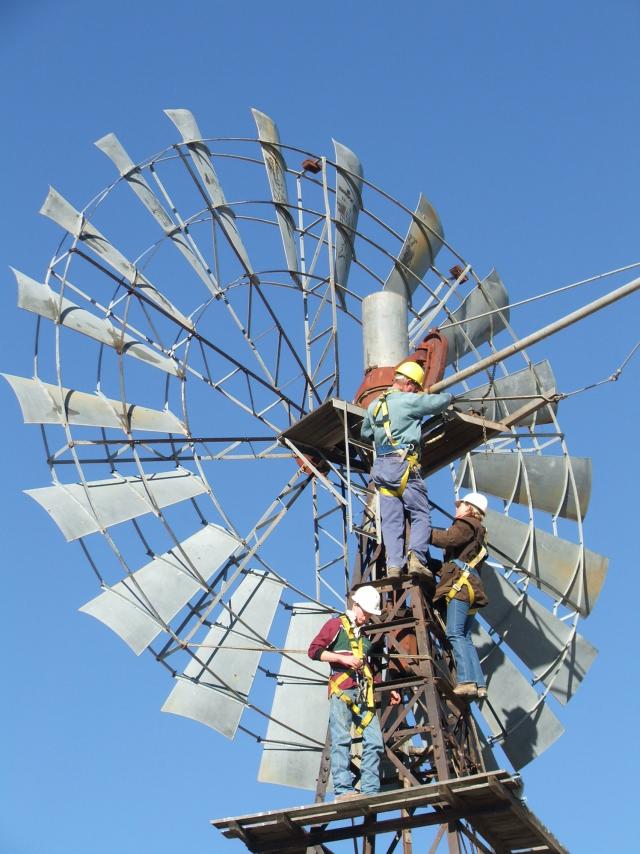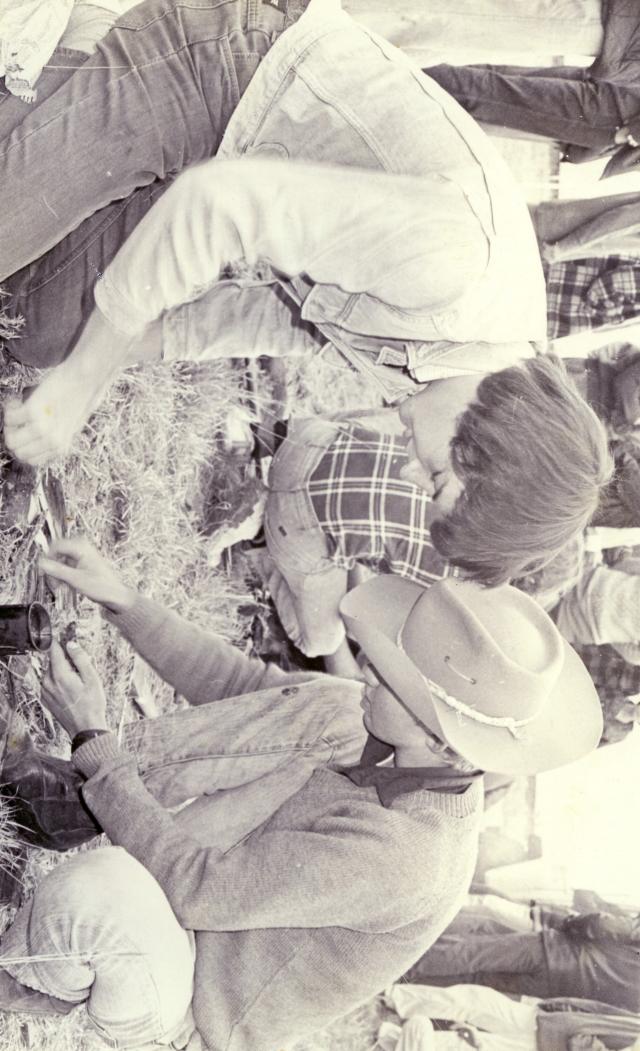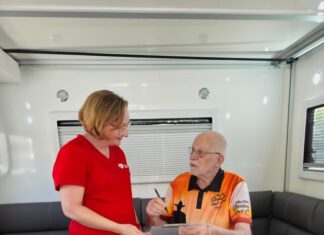Life skills, work ethic, practical farm knowledge – all topped with lifelong friends – is how Rob Carr benefitted from his two years as a student at the Longreach Pastoral College (LPC).
“I could do anything after Longreach,” Mr Carr said.
“If your truck broke down, you had a pretty fair knowledge of how to fix it. Not only did the college give you farming experience, but so much practical experience for life rolled in.
“It set me up.”
Rob Carr is over-qualified to talk about the LPC.
He was a college student in 1976 and 1977, a staff member for 20 years to 2019 and is now president of the Longreach Pastoral College Past Students & Staff Association.
Mr Carr said there was a crucial need for first-rate agricultural education in northern Australia to underpin the booming rural industries there.
“Students from Longreach were in demand and each year there was something like a 99 per cent success rate with everyone having jobs lined up throughout the country,” he said.
“A lot of the students who went to the college over the years have gone on to be industry leaders and very successful operators of diverse agricultural businesses.
“But, not everyone who graduated went directly into agricultural business. The college gave you the background to be able to do anything you wanted.”
When Mr Carr returned to LPC as an instructor of station activities it was managed by an independent board of directors.
He said when it became the Australian Agricultural College Corporation under the State Government – and later the Queensland Agricultural Training College – everything changed.
“Originally, I would ask the finance officer for money to buy something to help the students and he would say, ‘I haven’t got that’, but always seemed to find the money!” Mr Carr said laughing.
“But, the problem with governments running things is that you have to get two quotes and put in a requisition form and by the time that went through the deal would be gone.
“And, often, by the time it was approved, the item was then too dear so we couldn’t get it.
“Governments really shouldn’t be trying to run businesses and rural industries because that’s not their job.
“Standards will naturally drop and, unfortunately, that’s what happened at Longreach.”
Mr Carr said the reputation of LPC students diminished as competency-based training created a lowest common denominator effect in that passes were granted, regardless of work standards, to secure government funds.
“They said, ‘it doesn’t matter whether they are competent or not, you must pass them’.”
Rob Carr was raised in Mitchell in the Maranoa district on a mixed farm, which his father managed.
While studying year 10 at Mitchell State School, a Longreach Pastoral College staffer visited to promote its courses.
Mr Carr was instantly interested.
“I remember thinking, ‘now, this is a job for me’. I couldn’t wait to get to the college.”
First year provided a background in all subjects such as cattle, sheep, livestock, farming and engineering.
The following year, Mr Carr specialised in cattle and farming and then gained work on stations in Mitchell and Dalby.
After two years he was offered the mail run in Mitchell, alongside a fuel and transport business, which he ran for 17 years.
“It was a great opportunity,“ Mr Carr said.
For a change of pace, he then accepted a role with the then Booringa Shire Council as a stock route supervisor for five years before returning to the Longreach Pastoral College.
“I have very happy memories of those 22 years at the college. The staff were all like-minded. We all had a part to play and worked well together.”
Two of Mr Carr’s children attended LPC as students then also worked there for many years.
Mr Carr now runs an irrigation farm with his son at Longreach and is the town’s auxiliary fire captain.
He said the college was a big draw card for young people to the area.
“An amazing number of students that came to the college have stayed and provided a huge boost to the Longreach population over the years,” Mr Carr said.
“They’ve had contacts here for jobs and have ended up meeting a partner, marrying and having children.”
Mr Carr saw AAM managing director Garry Edwards present the consortium’s bid at the Longreach Civic Centre in February and said he felt hopeful for the future of the Longreach Pastoral College.
“I’m going to tell you, it’s going to depend on good management and the right people in the right job. If they’ve got good people, you know, the sky’s the limit.
“Really, it’s just finding those right people and you never know what the future may bring.”
*** Extended caption to run with historic photos ***
The Longreach Pastoral College Past Students & Staff Association hopes to open a museum and run tours through the revived educational facility.
Association president Rob Carr said he was excited to show off the college’s memorabilia and display its history better.
“The Department of Agriculture and Fisheries, who currently own the college, have given us a minimal lease on a room on-site for a few years.
“We’ve been collecting memorabilia to put in there and, ideally, we’d love to open it as a museum.
“So we’re just sort of in limbo until the new owners take it over and then, hopefully, there will be an opportunity for tours to run back through there again.”











